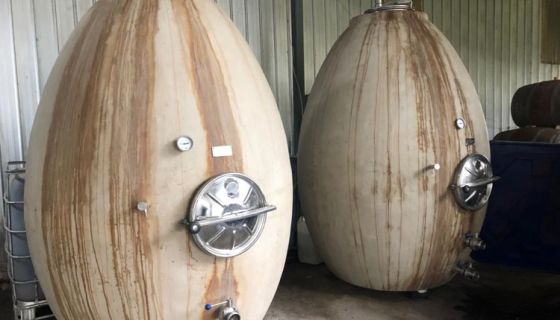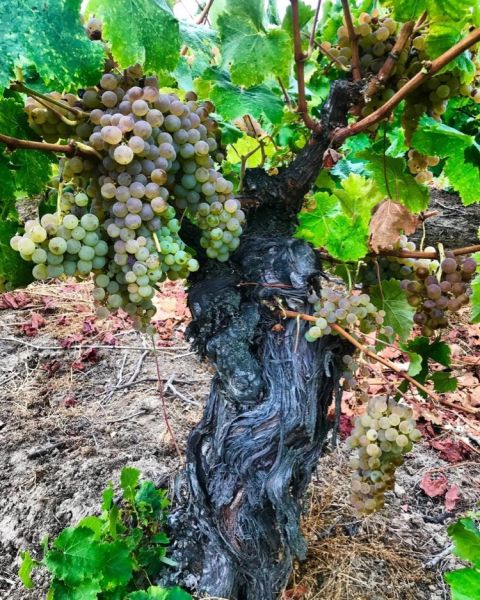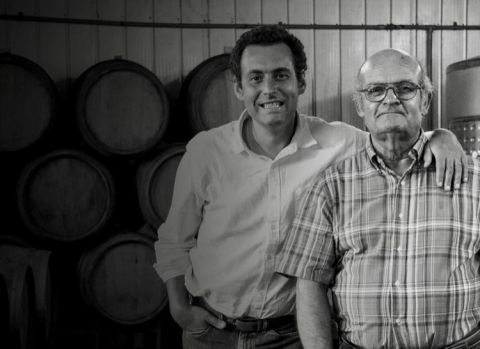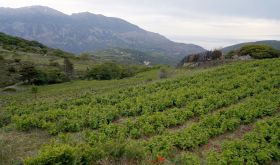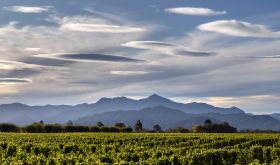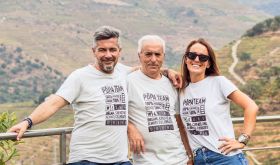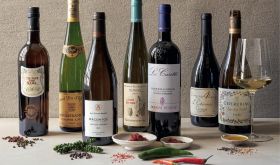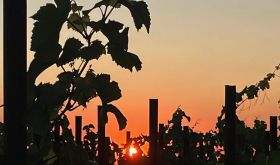From 12,990 Chilean pesos, CA$24.95, £14.95, $22
Some orange wines, those white wines that are darker than is usual for a white wine and more tannic because they have been fermented on the skins, can lose the character of the grape variety or be overly astringent. Some of my favourites, made by producers such as Josko Gravner in Collio, north-east Italy, are on the expensive side.
Not this one.
It is apricot gold in colour and has an inviting aroma of apricots, ripe peach and orange blossom – deliciously but not excessively fragrant – and it’s bone dry. The aromatic intensity and light spiciness is perfectly offset by the fine but definite tannins and freshness on the palate. It might sound like a conundrum but the contrast results in harmony and the wine is very keenly priced with an RRP of £14.95 in the UK.
As Jancis mentioned in her introduction to the recent Bunch tasting, long-established UK wine merchant Corney & Barrow (since 1780), perhaps better known for their royal warrants and exclusive clients such as DRC and Petrus, have recently made a more daring foray into Chile, thanks to buyer Rebecca Palmer. This is one of her finds.
The name Torontel has been used for more than one grape variety. According to commercial director and co-founder Sebastian Maturana, their vines are the same as the variety known as Torrontés Riojana in Argentina, which is a natural cross between Muscat of Alexandria and Listán Prieto (known as Criolla Chica in South America), but Torontel has also been used in Chile as a synonym for Torrontés Sanjuanino, which is a sibling of Torrontés Riojana.
Torontel grapes have pinkish skins (see below) and the pale amber colour of this wine comes from fermenting the juice with the skins, and then ageing the wine with the skins for eight months, in the concrete eggs pictured above right. In fact Maturana, Naranjo Torontel 2018 Maule is quite pale for a wine that has been macerated with the skins for quite this long.
The 80-year-old dry-farmed vines grown in alluvial and loamy soil in Loncomilla, a subregion of Chile’s Maule Valley named after a river of that name (zoom in south of Linares on this World Atlas of Wine map for the location). All the vineyard work is done by hand and no synthetic chemicals are used in the vineyard.
The handpicked grapes are destemmed and fermented over a period of eight days at 16–22 ºC (61–72 ºF) – that’s relatively warm for a white wine – in the concrete eggs (see also Walter’s recent article on the egg man in Tuscany) without the addition of cultured yeasts. The wine stays in contact with the skins for a further 8–10 months in these eggs, which allow a certain amount of oxygen ingress to soften the tannins and add complexity to the flavours and also tend to enhance the texture of the wine through the movement of the lees. The 13.5% alcohol is in harmony with all the other components of this distinctive wine.
Maule, a treasure trove of old vineyards, was particularly badly hit by Chile’s major earthquake in 2010. As Corney & Barrow explain in their informative background notes:
Like so many others, Jose Ignacio Maturana saw his family house and vineyards destroyed by the quake. As a result, he was forced to rebuild his business, and took the decision to focus on premium wines that would reflect their terroir. With that in mind, José Ignacio, former chief winemaker at Casa Silva, travelled to Burgundy in 2011 to make wine during the Chilean winter. There, he immersed himself in the techniques used in the region, aiming to understand from within how small producers were working traditionally to make high-end wines.
Jose Ignacio and his brother Sebastian therefore created Maturana Wines, focusing on organically farmed and hand-worked old vines (70+ years). The wine is vegetarian- and vegan-friendly.
They also make a delicious unoaked red from Garnacha top-grafted onto 100-year-old País vines (another variety that others are re-evaluating in both Chile and further afield – see Elaine Chukan Brown's article on Monday), which has a lovely dry texture and wild dark fruits, and sells for the same prices as the Torontel. Equally good value.
In the UK both wines are imported by Corney & Barrow and can be bought directly from them (online or in their shops in Newmarket and Ayr). According to C&B's Rebecca Palmer, they are also starting to distribute it to independent specialists and in the on trade, including Drake & Morgan bars/restaurants (London, Manchester, Edinburgh), Paladar (Elephant & Castle, London), Bon Vivant (Edinburgh), Smith & Gertrude (Edinburgh), Le Pot de Terre (Hornsey), Airds Hotel (Argyll, Scotland).
The Torontel is imported into the US by Ripe Wines (NYC), Vinos del Rey (Miami) and Parker Wolf (Texas). It is also available in Chile and Canada.

